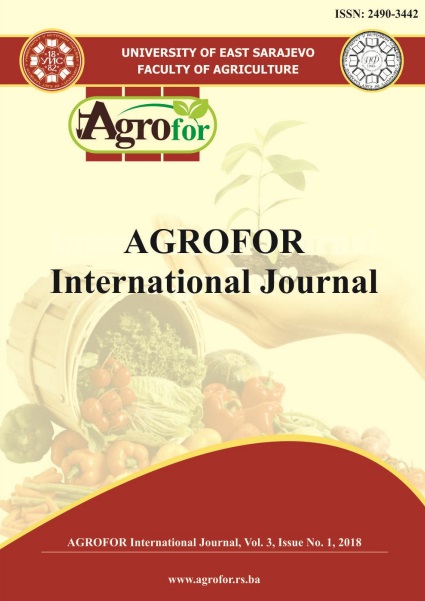INVESTIGATING THE EFFECT OF ARBUSCULAR MYCORRHIZA GLOMUS Sp. AS A BIOFERTILIZER ON LETTUCE PRODUCTION
DOI:
https://doi.org/10.7251/AGRENG1801092SAbstract
Arbuscular mycorrhiza used recently as biopesticide has shown beneficial effects
on plant growth. An experiment was conducted in West Bekaa in 2016 in order to
investigate the effect of a commercial biostimulant (MYCOSAT) containing 5
Glomus species on the production of two lettuce varieties: Romaine and Iceberg.
Plant growth and nutritional quality were compared between mycorrhizal plants
(mycorrhizal Romaine: MR and mycorrhizal Iceberg: MI) and non-mycorrhizal
plants (non-mycorrhizal Romaine: NMR and non-mycorrhizal Iceberg: NMI).
Measurements were done on root and leaf parameters and results showed a
significant positive effect of mycorrhizal inoculation on plant growth. Best results
were obtained for root parameters as well as leaf area and leaf weight in
mycorrhizal plants of both varieties compared to non-mycorrhizal plants. An
improvement was found in root length, root diameter, number of secondary roots
and root weight by 81%, 81%, 61% and 60% for MR plants and of 80%, 88%, 84%
and 94% in MR and MI in comparison to NMR and NMI. Leaf number was only
enhanced in MI plants. The improved crop performance was associated with an
ameliorated nutritional status with higher percentages of N, P, and K in leaves and
was correlated to a stronger root development in mycorrhizal plants due to the
action of arbuscular mycorrhiza. Finally, the application of the biostimulant
MYCOSAT could provide a biological tool for improvement of growth and quality
of lettuce grown in clay soils of West-Bekaa.

